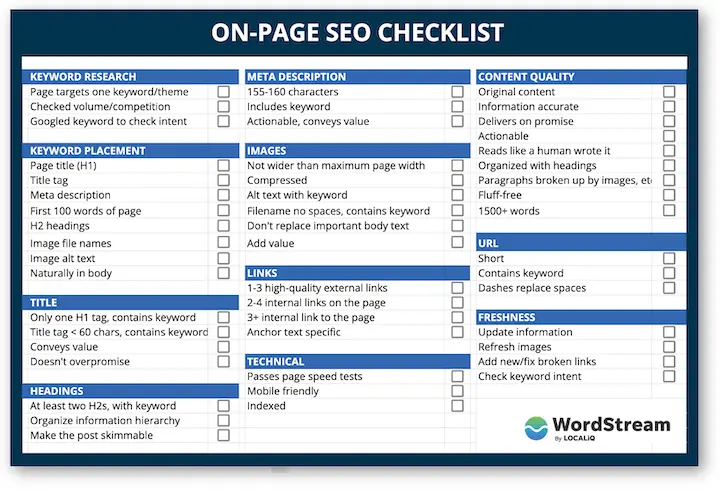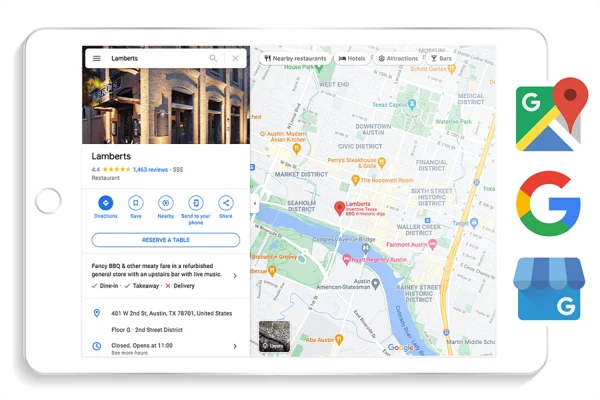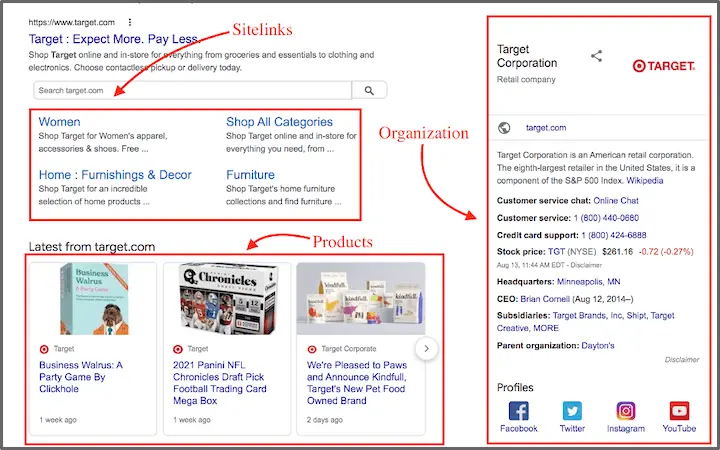
How to Get Better Search Results with SEO: Everything You Need to Know
Boosting a website’s frequency and prominence on search engine results pages (SERPs) is known as search engine optimization, or SEO.
Building an internet business nowadays requires search engine optimization. boosts sales, draws in unpaid traffic, and enhances brand image.
This book will teach you all you need to know about the most important SEO methods and key performance indicators.
Whether you’re new to SEO or just want to brush up on what you already know, this book will help you improve your online presence and generate noticeable results.
Learning the basics of SEO
To find your way around the world of SEO, you need to know what its basic parts are.
Search engines determine how to rank and grade webpages using algorithms and ranking parameters. Things like authority, relevancy, and user experience influence search results.
On-page SEO optimisation is essentially changing already optimised parts of your website. Finding relevant keywords and skillfully incorporating them into your content is the main goal of keyword research and targeting. Understanding what your visitors desire will enable you to focus the SEO copywriting on your website on their questions.
Content optimization helps people as much as search engines. Use of specific keywords in your headlines, subheadings, and meta tags helps search engines determine the topic of your material. Optimization of the content itself with keyword-rich, educational, and engaging writing provides other advantages like better user experience and content discovery.
On-page optimisation methods like URL structure and internal linking are very important. Making URLs that are detailed and easy to use makes websites easier to navigate and easier for search engines to crawl. It also helps to have a domain name that is good for SEO.Internal links allow search engines to discover and comprehend the relationships between the pages on your website. This increases traffic to your website and raises its SEO ranking potential.
Everything about off-page SEO optimization is about events that take place off of your website yet nevertheless impact search results. Link building techniques heavily rely on obtaining high-quality backlinks from reliable websites.Search engines see from these links the value and dependability of your website.
Social media signals and interactions fall under off-page SEO. Naturally occurring backlinks can be increased and even created via website traffic, content distribution, and social media interaction.
By understanding and using these SEO tips, you may create the conditions for increasing website visibility, attracting free traffic, and eventually reaching your goals for your internet business. Having read this much, you might wish to create an SEO strategy!
Checklist for SEO

Best techniques for technical SEO
Technical SEO is very important for making sure that your website is set up so that search engines can easily crawl, index, and understand its material. If you follow these basic SEO best practices, your website will work better and be seen by more people.
Improvements to website speed and function
Speed and performance optimisation for websites are very important. Websites that take a long time to load can hurt both user experience and search ranks. You can make your website much faster and better at what it does by reducing server reaction time, making code and file sizes smaller, using browser caching, and compressing images.
Mobile device optimisation and adaptable design
Mobile optimisation and flexible design are essentials in the world of today, which is mobile first.Considering that most internet searches are done on phones, a website that works well on phones is essential for both user experience and search results.Your website will always adjust with reactive design to suit various devices and screen sizes and provide the greatest possible viewing experience for visitors.
An XML index together with the robots.txt file
Workers at search engines must view files called robots.txt and XML sitemaps.Use of XML sitemaps helps search engines better index and find the pages on your website. Robots.txt files tell search engine spiders which pages to visit and which not in order to index the information on your website.
Concerns with canonization and superfluous material
Canonicalization and similar content concerns could hurt your website’s SEO. Canonical tags indicate which version search engines should use and assist to group together duplicate information. This avoids you paying a fine for having duplicate content.Regular inspections for and resolutions of duplicate content problems can raise your website’s rating and visibility.
Coding of structured data to improve search results
Better search results are produced by search engines having more background and information thanks to structured data markup. By using schema code on your website, you can add rich snippets, knowledge graph panels, and other visually appealing search result features that will get more clicks and be seen more often.
Strategies for local SEO
Local SEO is very important for companies that need to get customers from certain places. Using local SEO tactics can help your business show up higher in local search results and get more relevant visitors.
It is very important to optimise your Google My Business (GMB) page.Verify and complete your GMB profile.Name of your business, address, phone number, and business hours should all be included. Get your customers to provide reviews on your GMB page; good comments will improve your reputation and help others find you.

Creating content unique to the area and utilizing regional keywords will draw in local business. Select relevant local keywords and include them into your website’s meta tags and text. Craft landing pages or blog entries that are unique to a location and address the wants and interests of the locals.
Local companies must control their image and pay great attention to internet reviews.Ask your customers to rate you on Yelp, Google, and directories specific to your business. Your appreciation of customer feedback will be shown by your appropriate and timely response to both positive and negative reviews.
By using these local SEO techniques, you will draw in more local customers, have a strong online presence in your target market, and appear more often in local search results.
Cutting edge SEO strategies
With SEO evolving with time, more sophisticated tactics can set your website apart from the competitors. To consider are the following more sophisticated SEO tactics:
Enhancements for voice search
Optimization of voice searches is crucial as more people use voice assistants. To improve your content for voice searches, use natural language, respond to often asked questions, and concentrate on long-tail keywords that match conversational search queries.
Description of schemas and highlighted bits
People can find your website far more easily with schema code and featured snippets. Rich results like highlighted snippets are more likely to appear for your content when search engines comprehend it better thanks to structured data markup with schema.org.

For Accelerated Mobile Pages, see AMP.
Faster versions of your web pages are produced by Accelerated Mobile Pages (AMP), which improves the mobile user experience. Better user experience and more visibility in mobile search results can result from employing AMP, which can also increase user engagement and ranking.
Optimisation of video and images
Seen the film. Image and SEO optimization allow your website to appear in mixed search results. With alt tags, brief titles, and key phrases, photographs and videos can perform better. To raise awareness of your films, consider uploading them to websites like YouTube.
Here are some more video SEO tips.
International SEO things to think about
If you want to reach people all over the world, you need to think about international SEO. Use hreflang tags to show which language and area you’re trying to reach.Assign country-specific domains or subdirectories, and ensure that your content is relevant and localised for that culture.
Analysing and weighing keywords
If you want to know how successful your SEO efforts are and make data-driven improvements, you’ll need SEO analytics and measurement tools.
Using keyword research tools and tracking your website’s SEO performance will allow you to monitor its visibility and find areas for improvement.Regularly monitoring your keyword results allows you to track the efficiency of your optimization efforts and make any necessary improvements.
Google Analytics and other SEO tools can provide valuable insights into website performance. Google Analytics provides statistics such as sales, website traffic, and free visitors. Additional SEO tools include site audits, competitive research, and backlink analysis.
User behavior and engagement metrics analysis will disclose how people use your website.Consider bounce rate, average session length, and page visits, among other metrics, to identify opportunities for improvement in the user experience.
Setting goals and tracking conversions will help your company understand how SEO can help it achieve them. In Google Analytics, enable conversion monitoring to track form fills, purchases, and email signups.Making better educated selections becomes easier when you understand how effectively your SEO efforts are performing.
Opinions about future SEO measures.
One needs to be aware of the most recent SEO changes and their long-term effects in order to stay ahead of the competitors.
Update your SEO strategy to keep up with these changes and focus on providing high-quality, relevant SEO content.
Voice searches and focusing on mobile devices are getting increasingly popular. As cell phones and voice assistants become more prevalent, it is vital to ensure that experiences are optimized for voice search and speech. To keep up with these trends, you should focus on conversational keywords, organised data, and responsive design.
Core Web Vitals and user experience (UX) have become very important ranking elements. Search engines give more weight to websites that give users a great experience.Pay attention to elements like page load times, mobile device usability, and navigational ease if you want to achieve Core Web Vitals targets and enhance UX.
By monitoring these developments and upcoming concepts, you can modify your SEO plan before it’s too late, improve it for new technologies, and provide your users with an excellent experience that aligns with the way search is evolving.
Ending it up
Using the main strategies and tips in this piece can make your website’s domain authority and visibility go up by a lot.
In the always evolving field of search engine optimization, never undervalue the need of continuous education and improvement.Following industry developments, new algorithms, and best practices will help you stay ahead of the competition.
Your ability to modify and expand your SEO plan will dictate how successful you are in the long run at increasing organic traffic, enhancing user experience, and achieving your goals for your online business.
Do you know a lot about this? We’re always looking for new ways to add unique insights and deep knowledge to our material. If you have useful information to share, you might want to write for us. We’ll give you credit for your work so that our huge audience can see how knowledgeable you are. Feel free to email editor@jeffbullas.com to begin.












